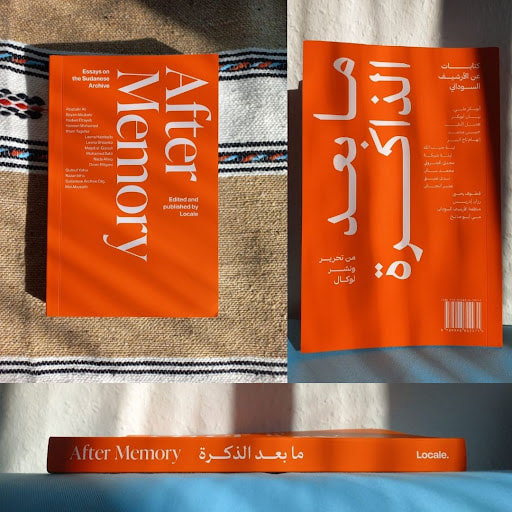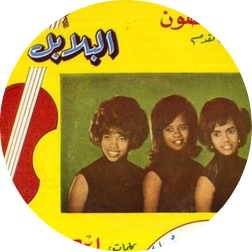Mihera Abdel Kafi"This book examines the processes and mechanics of the archive: its making, its necessity, and its function in informing the future within different practices and professions. It is not only about the different journeys that the archive takes, but the different journeys that lead us, as individuals, to the archive.”-After Memory, 2021  The Locale team, composed of Aala Sharfi, Nafisa Eltahir, Qutouf Yahia and Rund Alarabi simply never disappoints. The self-described female-led platform formed in 2016 that aims to develop and support homegrown Sudanese creative efforts, recently issued the anthology After Memory — a unique collection of essays on Sudanese history, politics, culture, art and much more. Fifteen essays, each relatively short, organized in three parts, address the topic of the Sudanese archive, which for the authors is understood "as a medium of service and future-making rather than as a vessel for nostalgia". In the first part of the collection, titled “Critique”, the essays explore, among other things, what it means to search for Sudanese history in archives in Sudan and abroad, what roles anecdotes play in the writing of history, what architecture and urban planning tell us about the archive, and who is telling these stories in the first place. This first part critically engages with what it means to be writing about a (post)colonial Sudan and a young country in which most of the population is under the age of 25, about preserving and shaping this country’s own identity, but also about female representation and visibility in this archive. The second part, “Encounter”, deals mostly with the Sudanese Revolution that started in December 2018, as captured in various photographs, pictures, videos but also preserved through music and poetry. The last part, “Construct”, is dedicated to the many things that at first glance can hardly be understood as archives. From rather more plausible things, like Sudanese cuisine, to the construction project of Sudanese Sport City (SSC), the ancient Sudanese practices of Zar, the history of Sudanese physicians’ struggles with previous and current regimes , and Khartoum’s deathscapes, one understands how all these things can map part of an overall history. The point this section of After Memory makes is that not only visible things like buildings or artworks make up the archive; rather, supposedly non-visible, non-graspable things — a real-life encounter, traditions, people’s struggles and habits — all should be archived. The remarkable thing about After Memory is not only the beautiful collection of valuable stories, but also the many images it makes available. The book is fully bilingual (English and Arabic) and has been put together exclusively by a Sudanese team. Notably, it is also cataloged in the National Library of Sudan, an act that is symbolic as well as practical, given the neglect and hostility with which public libraries in Sudan have been met during the 30 years of Omar alBashir’s brutal regime. After Memory is a product of the exhibition “This Will Have Been: Archives of the Past, Present, and Future” that Locale held in Khartoum at the end of 2019. As Locale writes: “This book examines the processes and mechanics of the archive: its making, its necessity, and its function in informing the future within different practices and professions. It is not only about the different journeys that the archive takes, but the different journeys that lead us, as individuals, to the archive.” The different articles were written by Bayan Abubakr, Magdi el-Gizouli, Leena Shibeika, Razan Idris, Hadeel Eltayeb, Haneen Mohamed, the Sudanese Archive Organization, Leena Habiballa, Mohamed Satti, Qutouf Yahia, Omer Eltigani, Abubakr Ali, Nada Atieg, Ilham Tagelsir and Mai Abusalih. After Memory can be purchased for 30$ (+shipping) directly through Locale’s linktree, where you can also listen to a playsit of music and sounds put together by Haneen.
0 Comments
|

 RSS Feed
RSS Feed